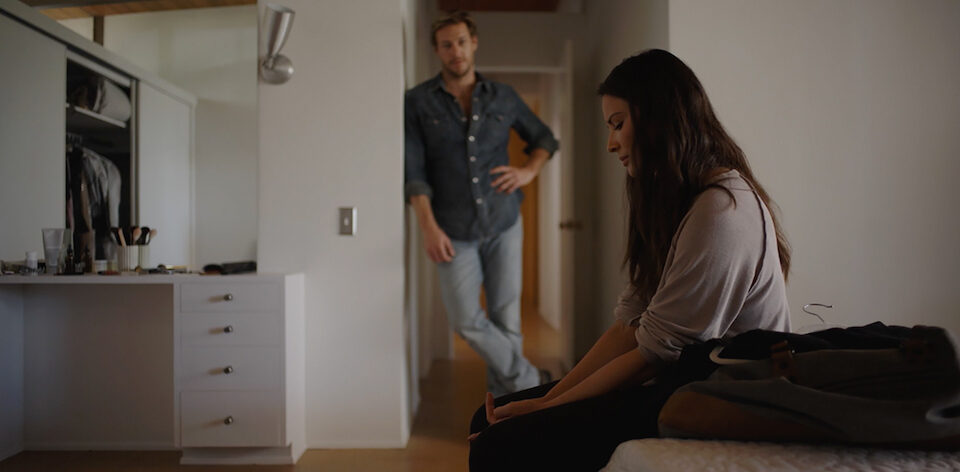From the opening frames of Justine Bateman’s VIOLET, this is a film that places a hand on each side of your head to hold it in place so that you pay attention. Set to the discordant electronic music of Venetian Snares, a rapid series of images flash on screen, from a decaying animal to the streets of Los Angeles. A voice tells us to ‘just hold on,’ and we’re already white-knuckling it for the ride.
Bateman’s directorial debut is about choices. “If you’ve ever made a fear-based decision that took you off track,” said Bateman at the Toronto International Film Festival introduction, “this film is for you.” When we meet her titular lead (played by Olivia Munn), she’s a character who appears to have an aspirational lifestyle. Violet has an influential position at a film studio, and effortlessly works industry connections.
It isn’t long before Bateman digs beneath the surface. A male voice of interior judgment criticises her every move, telling her that she’s ‘fat’ or not worthwhile, while contrary white text (featuring phrases like ‘Is there something wrong for me?’) signal a contrary interior self that is desperate to escape this cycle of self-blame. What the titular Violet refers to as “the committee in my head” comments, and is often at war, over a sea of micro (and macro) aggressions from men and women she meets in her Hollywood job.
VIOLET is a wholly immersive film. If you’ve ever suffered from even the mildest anxiety, Bateman’s innovative technique taps directly into that critical part of your brain that insists you take the path of least resistance. Of course, within the context of the wider #MeToo movement and the exposure of toxic masculinity across the world, Violet’s inner chorus feels less like a mental anxiety than it is a desperate and justified cry for escape. The screen literally fills with red as Violet’s committee clashes.
Munn is terrific in the lead, navigating the multiple roles that the people around her ask her to play. There’s a particularly powerful couple of scenes that showcase the nuance of her talent. In one, she speaks to her ex while keeps flashing back to the candles she’s left lit in an apartment, and a literal fire that drives her inner voices. Her eventual shift to the realisation that her inner voice has been lying to her this whole time is so gradual that you may find yourself surprised at the final act decisions.
To date, we have admired Bateman as an actor, writer and producer. With VIOLET, Bateman arrives as a confident filmmaker with a unique point of view. A vital film for the current climate, if you don’t see yourself in this film somewhere then you are probably part of the problem.
2021 | USA | DIRECTORS: Justine Bateman | WRITERS: Justine Bateman | CAST: Olivia Munn, Luke Bracey, Justin Theroux | DISTRIBUTOR: Relativity Media, TIFF 2021 | RUNNING TIME: 92 minutes | RELEASE DATE: 9 September – 18 September 2021 (TIFF 2021)







